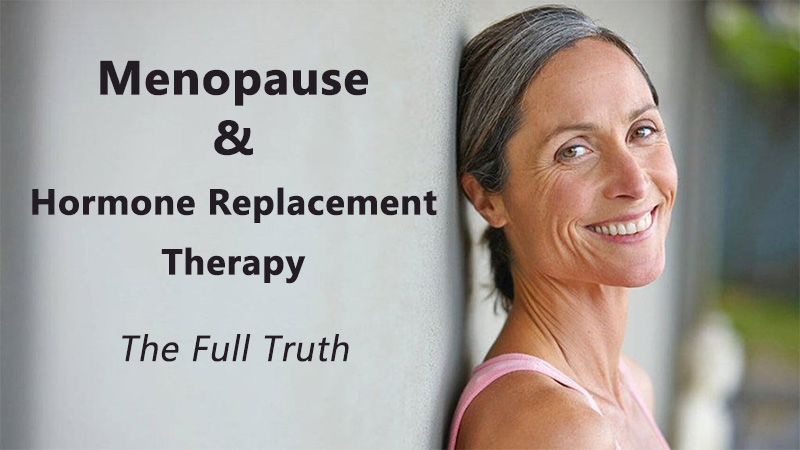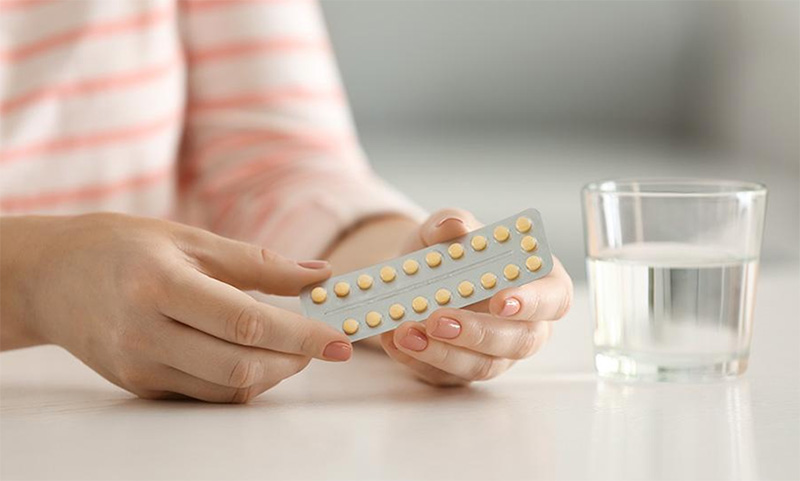Menopause & Hormone Replacement Therapy – Full Truth
Age changes that occur in the body of a woman entering the climacteric period are not the pleasant ones. The skin becomes dry and flabby; wrinkles appear on the face. Deficiency of sex hormones provokes pressure jumps, which lead to many health problems. Climax, according to the definition of endocrinologists, is a hormone-deficient condition associated with a weak physical condition as well as a stressed emotional state.

Around 10-25 years are necessary for the body to adapt to new conditions. Fortunately, it is possible to effectively undergo menopause treatment with correctly selected hormonal medications. What is important here is that HRT for menopause should begin once the first climacteric syndrome symptoms are observed.
Hormone Replacement Therapy for Menopause
There are many myths and misbeliefs about hormone replacement therapy. All these are due to the lack of knowledge and understanding of the therapy. Here are some of the main principles of HRT for your better understanding of the procedure:
- Only chemicals similar to natural hormones are used;
- HRT applies low dosages that correspond to the concentration of endogenous estradiol in young women up to the 5th-7th day of the menstrual cycle.
- Estrogens and progestogens in various combinations are used, which allows for excluding the processes of endometrial hyperplasia.
- In cases of postoperative absence of the uterus, there is the possibility of using only estrogens with intermittent or continuous courses.
- The minimum duration of HRT for the prevention and treatment of coronary heart disease and osteoporosis should be 5-7 years.
Some hormonal pharmaceuticals supplement the lack of hormones associated with menopause; others only eliminate the symptoms of their deficiency. Regardless of the medication the doctor prescribes to you, hormone replacement therapy performs the following functions:
- restoring lipid metabolism, which leads to a decrease in cholesterol. At the same time, HRT prevents the development of atherosclerosis and its dangerous complications – myocardial infarction and stroke;
- performing a psycho-emotional effect – HRT reduces anxiety, improves mood, memory, normalizes sleep, and increases libido;
- stopping the loss of calcium from the bones;
- preventing periodontal diseases leading to tooth loss;
- restoring the endometrium and mucosa of the genitourinary tract, which causes soreness of the genitals and frequent nocturnal urination.
What Hormonal Drugs Should You Take with Menopause?

The choice of hormonal pharmaceuticals is varied, but only a gynecologist can correctly select the right drug for you. For the regulation of the hormonal balance, complex drugs are usually prescribed; these include progestogens (progesterone) and estrogens in their contents. It is recommended that the proportion of estrogen in the preparation is as low as possible, but it is sufficient to prevent a menopausal syndrome.
Just like any other medications, HRT has some contraindications:
- breast cancer and endometrium;
- hepatitis;
- tumor processes in the liver;
- acute thrombosis or thromboembolism;
- allergy to drug components.
The remaining contraindications (including myoma and endometriosis) are decided on by the doctor depending on the patient’s chart. To date, there are three ways of taking hormones:
- monotherapy with estrogens and progestogens in a cyclic or continuous mode;
- combined therapy with drugs in a cyclic mode (intermittent and continuous drug regimens);
- combined therapy in a monophasic continuous mode.
The type of the therapy and all the medications are decided by the doctor based on your particular condition and patient’s chart.



